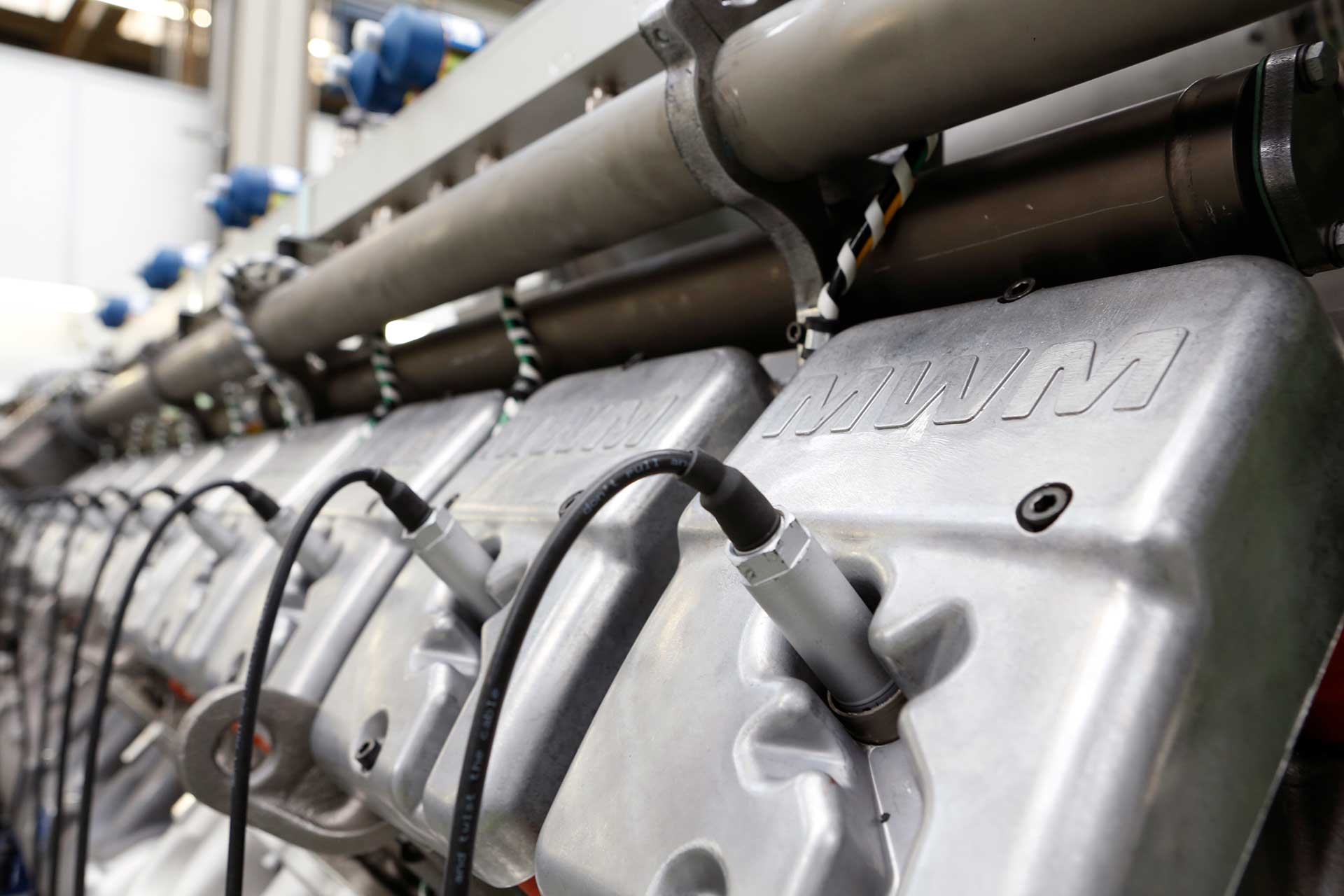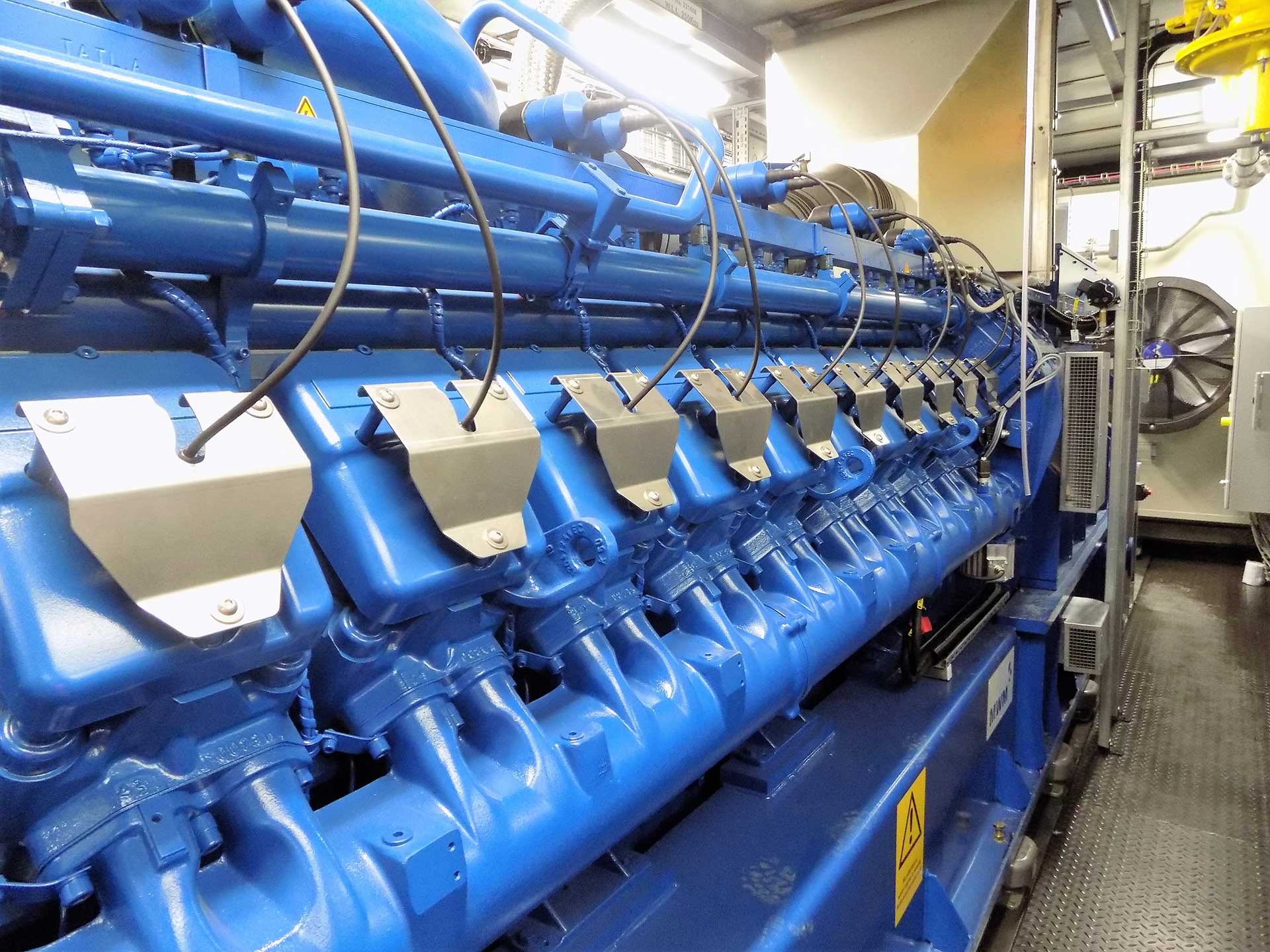Search

The threat of power shortages caused by the closure of major power stations and a reliance on renewable energy to compensate for this demand could potentially put at risk your security of power supply.
Gas powered generation plants, which can be operated continuously, or through standby application, offer a reliable and cost-effective solution to meet this electricity demand.
Should the site experience a loss of power, MWM gas engines can be configured to function in Island Mode and Black Start Operation.

In recent years, there has been an exponential growth in the application of natural gas gensets sets for baseload electric power. The drivers of this growth can vary from tighter emission requirements and carbon reduction to green/sustainable financial incentives.
The numerous benefits associated with lean burn gas engines have encouraged users to consider applying gas genset packages into applications that have traditionally been limited to diesel packages.
These applications are Standby or Island Mode type applications. The term Island Mode refers to the use of a genset as a captive source of electrical power that is designed to operate independently of any national or local power distribution network. In practice, this type of operation may be applied in either one of two possible plant configurations.
In the first scenario, the genset serves as the sole power source and has no connection with the mains supply. This is typically the kind of installation used in remote areas of a country that are therefore beyond the reach of any reticulated electricity network.
In this alternative scenario, one or more gensets may be connected in parallel with the electricity grid supply and will only operate in Island Mode when the mains supply is interrupted.
Island Mode introduces a number of challenges for gas gensets, so a scheme incorporating gas engines needs careful planning and the following will need to be considered:
A gas engine will have less load pickup (transient) capability than a diesel engine, both in terms of how large a load step the engine can accept and how large the voltage / frequency deviation will be. Also, the recovery time after a load step is longer for a gas engine. Consequently, it is important to understand the application and to manage expectations.
Generally, as engine fuel efficiencies have increased and emissions levels have reduced, gas engines’ capability to accept step loads has decreased. To combat this, engine variations have been introduced with improved or optimised transient capability. The key to a successful Island Mode application is correctly sizing the engine so that it is matched to the application’s needs.
The only way to ensure a successful Island Mode application is to understand the user’s bespoke and unique requirements. The “Big Picture” is derived from the details. There are lot of different factors, each of which are important, that affect Island Mode performance. It is therefore imperative that all these factors are understood, for a successful Island Mode application.
Factors to be considered are:
The electrical distribution and associated earthing system into which the gas gensets are to be applied.
What are the allowable voltage and frequency deviations and recovery times?
What are the load details, for example, what types of loads are being applied, how many load steps are needed and what is the load profile / strategy? It may also be useful to understand if there is any flexibility in the loading strategy.
Extraneous factors such as environmental emissions limits, altitude, ambient temperature, available fuel type, gas pressure etc.
The MWM TCG range of gas engines are relatively straightforward to configure for Island Mode Operation. Should Island Mode be considered, it is vital to engage with an experienced solutions provider, such as Edina.
We have a dedicated multi-disciplinary team whose collective in-depth knowledge and expertise in this arena, has made us a leading authority on all aspects of the applications of both gas and diesel gensets for Island Mode Operation applications.



Copyright © Edina. All Rights Reserved.